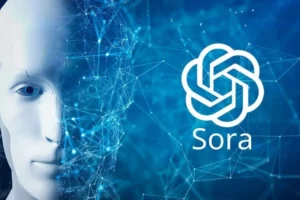While large language models (LLMs) like GPT-4o, Gemini, and Sonnet have become adept at complex tasks like text generation and code translation, a recent study reveals a surprising vulnerability: their struggle with abstract concepts that seem trivial to humans.
This research, published in the prestigious journal Nature Machine Intelligence, sheds light on the limitations of current LLMs and highlights the need for a more nuanced approach to artificial intelligence.
The Power and Peril of Massive Datasets
LLMs are trained on massive amounts of text data, allowing them to identify patterns and generate human-quality text. They excel at tasks that require reasoning based on factual knowledge – summarizing factual articles, writing different kinds of creative content, or translating languages.
However, the very nature of their training data can be their downfall. LLMs are essentially statistical machines that learn by identifying correlations in massive datasets. While this method proves effective for factual tasks, it can lead to shortcomings when dealing with abstract concepts or common-sense reasoning.
The Case of the Trivial Quandary
The study presented a series of challenges to GPT-4o, Gemini, and Sonnet. These challenges involved seemingly simple scenarios that required an understanding of common sense and the ability to make inferences based on implicit information.
For example, one challenge involved a scenario where a person walks into a library and whispers to the librarian. The LLM was then asked to predict what the person might be whispering about. While seemingly straightforward for a human, these models struggled to answer correctly. Their training data, filled with explicit statements and factual knowledge, lacked the context and implicit understanding needed to navigate such scenarios.

Another challenge involved riddles or wordplay. LLMs, accustomed to literal interpretations, found it difficult to grasp the underlying meaning and humor in these seemingly simple linguistic puzzles.
The Gap Between Factual and Fictional
The study also highlighted the limitations of LLMs when it comes to understanding narratives and fictional scenarios. While they can analyze vast amounts of text and identify patterns, they struggle to grasp the nuances of storytelling, character development, and the emotional core of a narrative.
This inability to comprehend fictional scenarios exposes a fundamental limitation. The human ability to learn and reason extends beyond factual information; it encompasses the ability to imagine, empathize, and understand stories. These aspects, crucial for human intelligence, remain elusive to current LLMs.
Towards a More Robust AI
The findings of this study are crucial for the future development of AI. It highlights the need for LLMs that go beyond mere statistical analysis and can incorporate common-sense reasoning, understand abstract concepts, and navigate the complexities of human language.
Here are some potential avenues for future research:
- Incorporating diverse datasets: Training LLMs on a wider range of data that includes narratives, fiction, and everyday conversations could help them develop a better understanding of context and implicit meaning.
- Developing models of human reasoning: Research into human cognition and reasoning processes could inform the development of LLMs that can mimic human-like reasoning and inference.
- Focus on explainability: Building models that can explain their reasoning behind answers could shed light on their limitations and provide opportunities for improvement.
A Call for a Broader Approach to AI
The recent study on LLMs highlights the importance of recognizing and addressing the limitations of current AI models. While these models have achieved remarkable feats, their struggle with seemingly simple tasks underlines the need for a more comprehensive approach to artificial intelligence. By incorporating common-sense reasoning, a grasp of abstract concepts, and the ability to understand the nuances of human language, LLMs can evolve beyond mere statistical machines to become truly intelligent companions.
















Add Comment